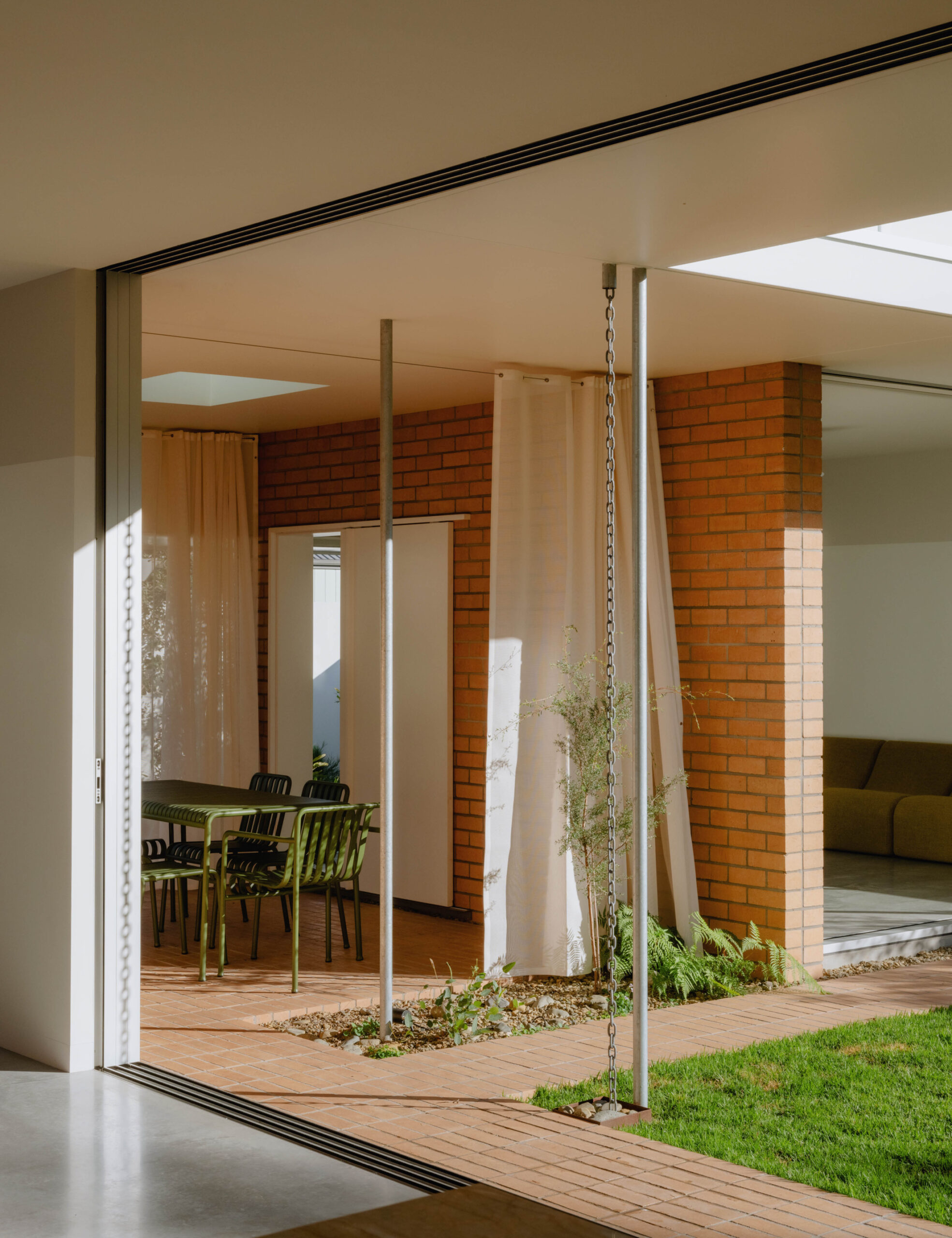Kanooka House is a new-build home designed with an appreciation of the original beach houses in Bogangar — a small coastal town located in north-eastern NSW, about 40 minutes north of Byron Bay.
The new house was designed for a vacant site with a slightly unorthodox shape, requiring architects Dan Wilson and Knight Office (who worked in collaboration on this project) to navigate multiple issues at once.
‘We needed to fit quite a lot of program into a small area,’ explains Dan. ‘The views to the Melaleuca forest opposite the site, the orientation of the block, the views to neighbouring houses, and a busy street nearby all had a significant impact on how the plan was developed.’
Respecting the neighbourhood character was important to both the architects and clients, especially given the home’s relatively exposed site.
‘We would prefer our projects to blend in with what’s around, rather than stand out’ says Dan. ‘We are interested in this type of architecture as we believe it makes for good neighbourhoods.’
As a result, Kanooka House references the existing architecture of the neighbourhood, pairing apricot coloured brickwork with fibre cement cladding.
Like original houses in the area that have no or low front fences, the new building is mostly open to the street, with a native garden in between to balance privacy.
‘This helps to encourage interactions between neighbours, helping to forge community ties and make for a safer, more welcoming street,’ says Dan.
The roof of the second storey pitches down towards the street — a deliberate gesture to further reduce the scale of the building.
Inside the home, the main living spaces (kitchen, dining, sitting, and rumpus areas) are positioned in an L-shape around a northern courtyard.
‘The main living space has large openings facing the courtyard and pool, but it also has a number of smaller openings, providing a playful backdrop,’ says Dan.
‘Small openings are positioned in high circulation areas (like between the kitchen and hallway, or kitchen and stairwell) to allow the occupants opportunities to poke their head in on their way past to say hello.’
The children’s bedrooms and bathroom sit behind the living spaces on the southern side of the building (facing the street), separated from the communal areas by an internal hallway.
‘The internal hallway between the living room and bedrooms houses an indoor garden, wash basin, mud room, a tall raked ceiling with skylights, and is painted a deep green,’ says Dan. ‘These small moves help turn a mundane hallway into quite a special room, providing a transition space that is a stark contrast between living areas and the bedrooms.’
The upper level is reserved for parents, containing their bedroom, en suite, and office.
After the design and approvals period, the house was constructed in nine months, in line with a strict budget, navigating price rises after the pandemic.
‘All of the wall and roof framing was prefabricated in order to reduce costs, and so, for example, all of the windows and doors were manufactured based on the drawings, rather than measurements on site,’ says Dan. ‘Everything had to be drawn by our team perfectly, to take full advantage of this system.’
All this was achieved as a result of the great collaboration between Dan and James with their clients, plus builder Berecon, and landscape designer Toco.
‘There was such a great dynamic between ourselves, the builder, and the clients, and everyone has become friends throughout the process,’ says Dan.
‘The clients love the home and regularly send us updates on the landscaping, what’s in bloom, what’s growing rapidly.’

